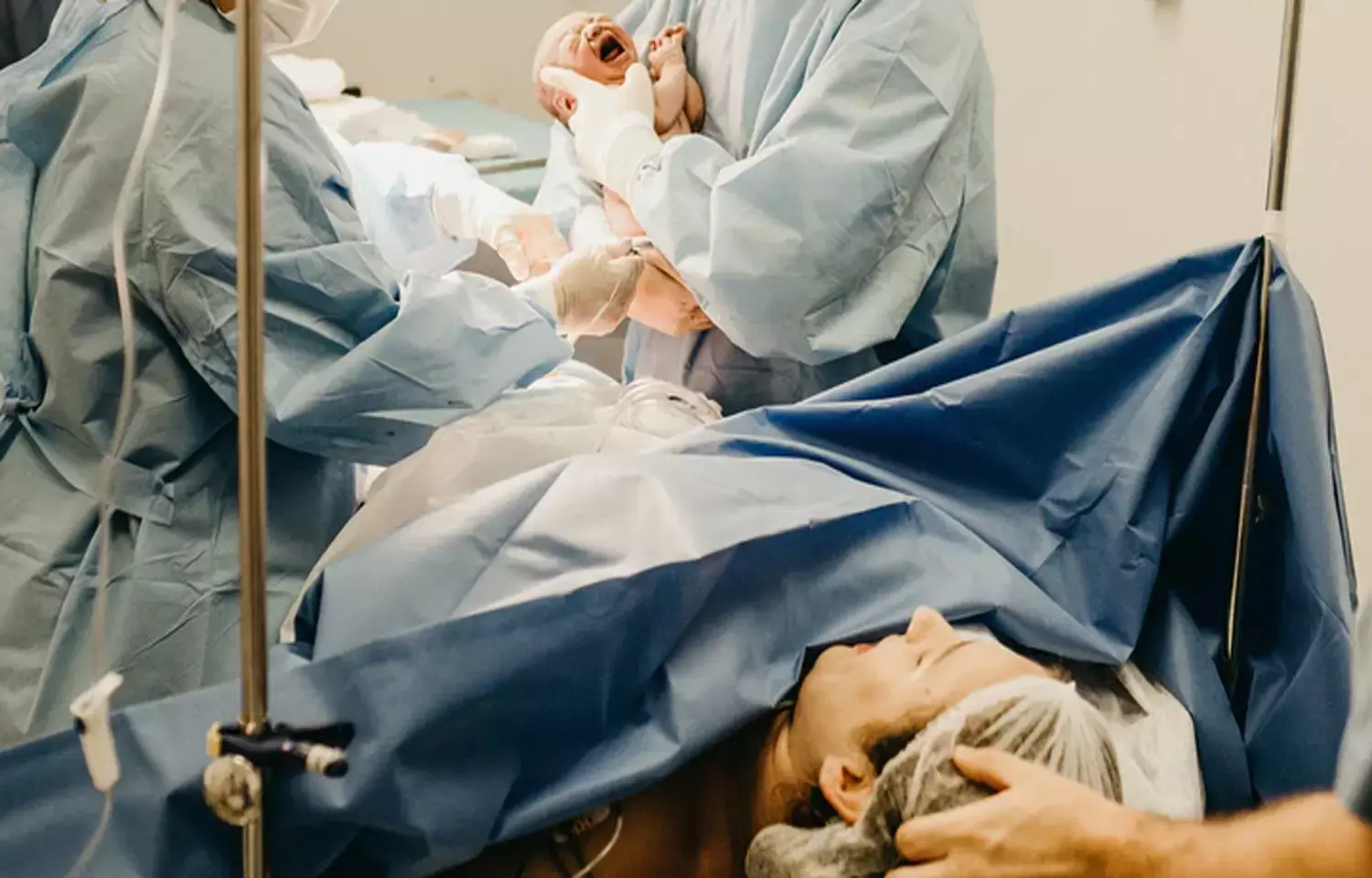- Home
- Medical news & Guidelines
- Anesthesiology
- Cardiology and CTVS
- Critical Care
- Dentistry
- Dermatology
- Diabetes and Endocrinology
- ENT
- Gastroenterology
- Medicine
- Nephrology
- Neurology
- Obstretics-Gynaecology
- Oncology
- Ophthalmology
- Orthopaedics
- Pediatrics-Neonatology
- Psychiatry
- Pulmonology
- Radiology
- Surgery
- Urology
- Laboratory Medicine
- Diet
- Nursing
- Paramedical
- Physiotherapy
- Health news
- Fact Check
- Bone Health Fact Check
- Brain Health Fact Check
- Cancer Related Fact Check
- Child Care Fact Check
- Dental and oral health fact check
- Diabetes and metabolic health fact check
- Diet and Nutrition Fact Check
- Eye and ENT Care Fact Check
- Fitness fact check
- Gut health fact check
- Heart health fact check
- Kidney health fact check
- Medical education fact check
- Men's health fact check
- Respiratory fact check
- Skin and hair care fact check
- Vaccine and Immunization fact check
- Women's health fact check
- AYUSH
- State News
- Andaman and Nicobar Islands
- Andhra Pradesh
- Arunachal Pradesh
- Assam
- Bihar
- Chandigarh
- Chattisgarh
- Dadra and Nagar Haveli
- Daman and Diu
- Delhi
- Goa
- Gujarat
- Haryana
- Himachal Pradesh
- Jammu & Kashmir
- Jharkhand
- Karnataka
- Kerala
- Ladakh
- Lakshadweep
- Madhya Pradesh
- Maharashtra
- Manipur
- Meghalaya
- Mizoram
- Nagaland
- Odisha
- Puducherry
- Punjab
- Rajasthan
- Sikkim
- Tamil Nadu
- Telangana
- Tripura
- Uttar Pradesh
- Uttrakhand
- West Bengal
- Medical Education
- Industry
Respiratory morbiditiy risk higher in infants born by early-term C section: Study

Doha, Qatar: Infants born by elective cesarean section prior to full-term gestation are at significantly higher risk of respiratory morbidities, finds a recent study in the Journal of Perinatal Medicine.
Globally, there is an increase in the rates of cesarean sections accounting for about 21 percent of the total birth. Despite being a life-saving procedure in some complicated cases, the unprecedented rise in C sections is disturbing due to its association with significant short-term and long-term infant and maternal morbidity and mortality.
Against the above background, Jis Thomas, Royal College of Obstetricians and Gynecologists, Doha, Qatar, and colleagues aimed to examine the impact of early-term cesarean section (CS) on respiratory morbidity and early neonatal outcomes when an elective cesarean section was carried out before 39 completed weeks gestation.
For this purpose, the researchers performed a one-year population-based retrospective cohort analysis using routinely collected hospital data. Livebirths from women who had elective lower segment cesarean section (ELSCS) for uncomplicated singleton pregnancies at early term (ET) 37+0 to 38+6 weeks were compared to full-term (FT)≥39+0 weeks gestation. Those with diabetes, antenatal corticosteroid use, stillbirths, immediate neonatal deaths, normal vaginal deliveries, and emergency caesareans sections were excluded.
The outcomes were combined respiratory morbidity (tachypnea [TTN] and respiratory distress syndrome [RDS]), Apgar <7 at 5 min of age, respiratory support, duration of respiratory support, and NICU admission.
Key findings of the study include:
- Out of a total of 1,466 elective CS with term livebirths, the timing of CS was early term (ET) n=758 (52%) and full-term (FT) n=708 (48%).
- There was a higher incidence of respiratory morbidities and neonatal outcomes in the ET in comparison to FT newborns.
- In the univariable analysis, significant risks for outcomes were: the need for oxygen support OR 2.42, respiratory distress syndrome and/or transient tachypnea of newborn (RDSF/TTN) OR 2.44 and neonatal intensive care unit (NICU) admission OR 1.91.
- Only the need for oxygen support remained (OR 1.81) in the multivariable analysis.
- These results were observed within the context of a significantly higher proportion of older, multiparous, and higher number of previous cesarean sections in the early term CS group.
"There is a significant risk of respiratory morbidities in infants born by elective cesarean section prior to full-term gestation" wrote the authors.
"Obstetricians should aim towards reducing the high rate of women with previous multiple cesarean sections including balancing the obstetric indication of early delivery among such women with the evident risk of neonatal respiratory morbidity," they concluded.
Reference:
The study titled, "The neonatal respiratory morbidity associated with early term caesarean section - an emerging pandemic," is published in the Journal of Perinatal Medicine.
DOI: https://www.degruyter.com/document/doi/10.1515/jpm-2020-0402/html
Dr Kamal Kant Kohli-MBBS, DTCD- a chest specialist with more than 30 years of practice and a flair for writing clinical articles, Dr Kamal Kant Kohli joined Medical Dialogues as a Chief Editor of Medical News. Besides writing articles, as an editor, he proofreads and verifies all the medical content published on Medical Dialogues including those coming from journals, studies,medical conferences,guidelines etc. Email: drkohli@medicaldialogues.in. Contact no. 011-43720751


